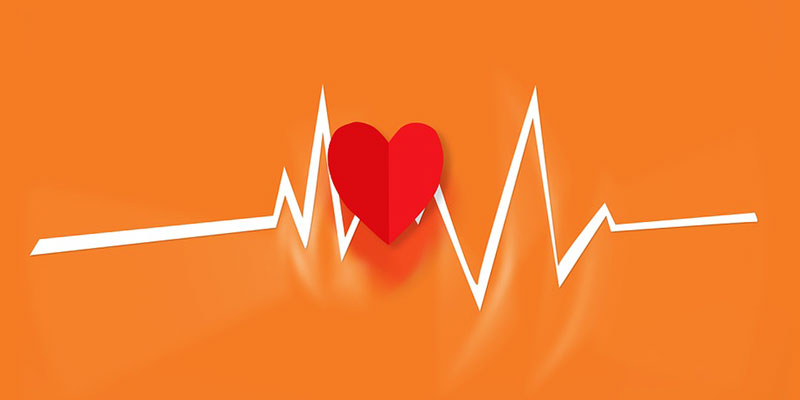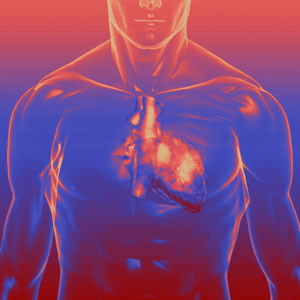The Average Heart Will Beat 2.5 million times

Your heart is one hard working muscle. As it beats, it pumps blood through your whole body, sending out nutrients and oxygen to every organ.
During the average human lifetime, the heart beats 2.5 billion times. That’s around 108,000 times per day or 39,000,000 per year.
What is a Happy, Healthy Heart?
One parameter of a healthy heart is that the perfect amount of blood, at the right rate, is pumped through the body.
This is related to what you do — if you rest, your heart has no need to beat as fast; if you’re frightened and running, it will pump as hard as possible.
The Heart Rate and Pulse
Do note the difference between the heart rate and the pulse. The heart rate is the number of times your heart beats per minute (bpm) as it pumps blood. The pulse refers to your arteries contracting and expanding, and it is palpable to the trained touch.
Blood Pressure (BP) and Heart Rate
Blood pressure (BP) measures the pressure the blood exerts on the artery walls. The higher number you see when you measure your BP is the artery pressure when the heart beats; the lower number is the amount of pressure when the heart rests between beats.
They aren’t directly correlated. In other words, your heartbeat may slow down as you sleep because you don’t move, but it doesn’t mean your bp will drop much!
How to Measure Heart Rate
 You can measure your heart rate quite easily and precisely. Just find an area where you can feel the pulse and count the number of beats over time.
You can measure your heart rate quite easily and precisely. Just find an area where you can feel the pulse and count the number of beats over time.
Don’t use your thumb for this, as the skin on it is a bit thicker and you might not feel the pulse so well through it.
Just place 2 fingers on: -your wrist
-your neck
-the inside of your elbow
-the top of your foot
You can count the beats for 20 seconds. Then you multiply the number by 3, or you can even count just 10 seconds and multiply by 6.
Here is an equation you can use: _____ beats in 10 seconds x 6 = _____ beats/minute
What Can Influence the Heart Rate?
Many things! Doesn’t your heart pound when you watch an exciting movie? What about after a large meal? The heart temporarily picks up the pace for many reasons. Here are the common ones:
- Age and Activity Levels
Read about these effects in the Resting Heart Rate subchapter for more detail.
- Smoking
Smoking elevates the heart rate — a reason to give it up for good.
- Cardiovascular disease or high cholesterol
Heart disease, in particular, affects heart rate, partly due to the nature of the disease and partly because of the medicines used to treat it.
- Air temperature
When the temperature is high, your heart pumps a bit faster due to dilated blood vessels.
- Your Emotions
When you are stressed, your emotions can spike your pulse.
- Body size
Obesity usually means a faster heartbeat overall to sustain the body.
- Medications
Beta blockers may slow your pulse, and a high dose of thyroid medication will raise it.
- Body position
Your pulse may speed up after you get up after a long while of rest.
What Are Normal and Resting Heart Rates?
Typically, we look at age to decide on a normal heart’s bpm.
For elementary and middle school children, 70–100 bpm is standard, but for adults, 18 and over (up to about 60), 60–100bpm is standard. Also, when you sleep, 40 to 50 bpm is perfectly normal. Having a heart rate lower than 60 when you rest is also normal for athletes because they have grown their heart muscle. It is bigger than average, and it can pump more blood with fewer beats. Athletes can be perfectly healthy with a resting heart rate of 40 bpm.
People on beta blockers or those with other medical issues can have a lower heart rate. The name for this is Bradycardia, meaning the bpm is below 60 at rest. The opposite is called Tachycardia, meaning you have more than 100 bpm at rest. So a “normal” heart rate is the one people have in their age group when resting.
The Resting Heart Rate refers to the beats per minute that your heart needs when you aren’t active. You can measure it yourself first thing when you get up..
For a more detailed overview, see below:
| Age | Normal heart rate (bpm) |
| From 1 to 2 years | 80 to 130 |
| From 7 to 9 years | 70 to 110 |
| From 20 to 30 years | 100 to 170 |
| From 30 to 40 years | 90 to 150 |
| From 40 to 50 years | 85 to 140 |
| From 50 to 60 years | 80 to 130 |
As you can see, our heart rate tends to slow down over our lifetime. But keeping our heart at optimal capacity during life is what gives it its quality.
Maximum and Target Heart Rate
Balance is the key here. You might have a naturally high resting heart rate, but it really shouldn’t go over too much the normal spectrum. A heart that beats too fast puts stress on the whole body, starting with itself.
The AHA (American Heart Association) advises people to exercise in their “target heart zone,” to stay safe, and grow their heart muscle. This target heart rate zone lies between 50-85% of your maximum heart rate.
To calculate your maximum heart rate, subtract your age from the number 220. For example, 220 minus 30 equals 190. Your heart really can’t beat faster than that at that age. Then, your target zone is between 50-85% of your maximum heart rate, so between 95 bpm and 162 bpm.
Lowering Heart Rate
There are many things that can spike the heart rate. But what to do then?
- Remain calm and take a deep breath. Stretch your body. Be still.
- Cool down after a workout. Your heart has worked overtime, and a sudden stop in exercise leaves your dilated blood vessels in the lurch.
- Go on a 5-minute walk in nature.
When One Apple a Day Just Won’t Do
Always immediately seek emergency care if:
- You have chest pain lasting longer than several minutes
- You have difficulty breathing
- If you have pain in your right arm
Heart disease is the main cause of death in the modern world. So take care of your heart.


